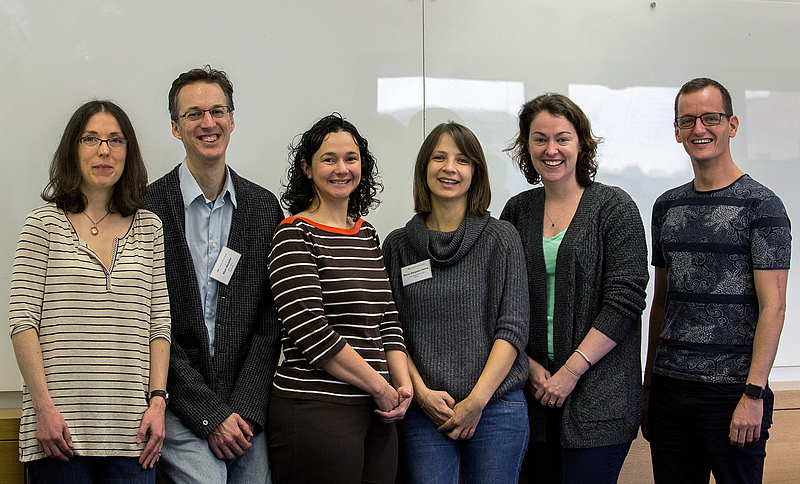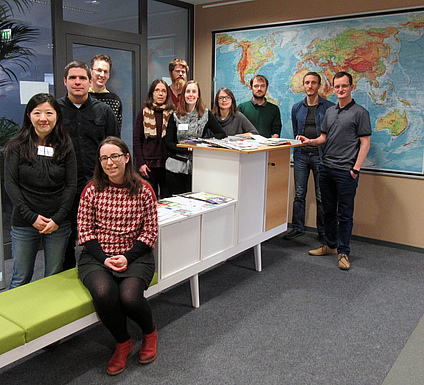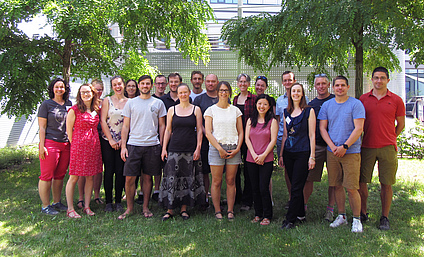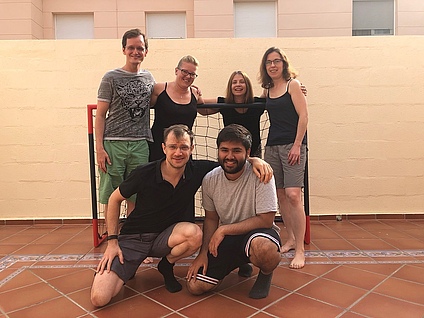sAPROPOS – Analysis of PROjections of POpulationS
First meeting: 23.-25.11.2016
iDiv members:
Tiffany Knight
Stan Harpole
Project summary:
Extinctions and invasions are at their most fundamental level pure demographic processes; species go extinct or invade because their population numbers decline or increase, respectively, from what would be optimal. Understanding which and how species may become locally/globally extinct or invasive has become one of the most pressing needs to preserve biodiversity. Projecting demographic trends to evaluate the viability of endangered species or the invasive potential of alien species can be challenging due to various reasons, including the need to collect field demographic data before such predictions can be adequately made, and the use of sophisticated modelling technics that often times do not include all the complexities of the studied taxa. Here we take advantage of two unique open-access repositories of high-resolution demographic information for over 2,000 plant and animal species from around the globe, a hyper-resolution climate model that makes accurate predictions into past and future years, and the collective expertise of the working group members (mathematical demography, invasion biology, conservation science, climate modelling, demographic projections, sensitivity analysis) to evaluate with state-of-the-art modelling techniques which species and in which habitats are more likely to go extinct or become invasive under the repertoire of IPCC climate projections. The proposed working group and nominated postdoc will produce (i) several high-impact factor publications on novel combination of methodologies to project species viability into the future, (ii) a freeware application for teaching and general public dissemination purposes, (iii) a scientific symposium with an (iv) associated special feature on demographic viability and climate change, and (v) a general public session to raise awareness on the challenges of climate change for biodiversity and ways in which species may cope with them.
Participants:
Stan Harpole (iDiv); Tamora James (University of Sheffield); Roberto Salguero-Gomez (University of Sheffield); Maria Paniw Simpson (Universidad de Cadiz); Britta Teller (Utah State University); Tiffany Knight (iDiv)


sAPROPOS working group meeting November, 2016


sAPROPOS working group meeting February, 2017
Second meeting: 06.-10.02.2017
Participants:
Judy Che-Castaldo (Lincoln Park Zoo); Yvonne Buckley (Trinity College Dublin); Jean Burns (Case Western Reserve University); Scott Chamberlain (UC Berkeley/rOpenSci); Dylan Childs (University of Sheffield); Aldo Compagnoni (Rice University); Stan Harpole (iDiv); Tamora James (University of Sheffield); Owen Jones (University of Southern Denmark); Tiffany Knight (UFZ); Georges Kunstler (Irstea); Arpat Ozgul (University of Zurich); Maria Paniw (University of Zurich); Roberto Salguero-Gomez (University of Sheffield); Nora Sánchez Gassen
Third meeting: 12.-16.06.2017
Participants:
Catharine Archer (Univeristy of Exeter); Patrick Barks (University of Southern Denmark); Andrew Beckerman (University of Sheffield); Joanne Bennett (iDiv); Yvonne Buckley (Trinity College Dublin); Jean Burns (Case Western Reserve University); Judy Che-Castaldo (Lincoln Park Zoo); Dylan Childs (University of Sheffield); Aldo Compagnoni (Rice University); Stan Harpole (iDiv); Dave Hodgson (University of Exeter); Tamora James (University of Sheffield); Owen Jones (University of Southern Denmark); Tiffany Knight (UFZ); Georges Kunstler (Irstea); Sam Levin (iDiv); Arpat Ozgul (University of Zurich); Maria Paniw (University of Zurich); Sophia Ratcliffe (iDiv); Gesa Römer (University of Southern Danmark); Nadja Rüger (iDiv); Rob Salguero-Gomez (University of Oxford); Nora Sánchez Gassen (Nordregio); Robin Snyder (Case Western Reserve University); Brittany Teller (Penn State University)


sAPROPOS working group meeting June, 2017
Writing Retreat: 16.- 21.09.2019 in Cadiz
Participants:
Aldo Compagnoni (iDiv); Tamora James (University of Sheffield); Maria Paniw (CREAF University of Barcelona); Abir Patwary (University of Oxford) ; Gesa Römer (University of Southern Danmark); Rob Salguero-Gomez (University of Oxford);


sAPROPOS writing retreat September, 2019